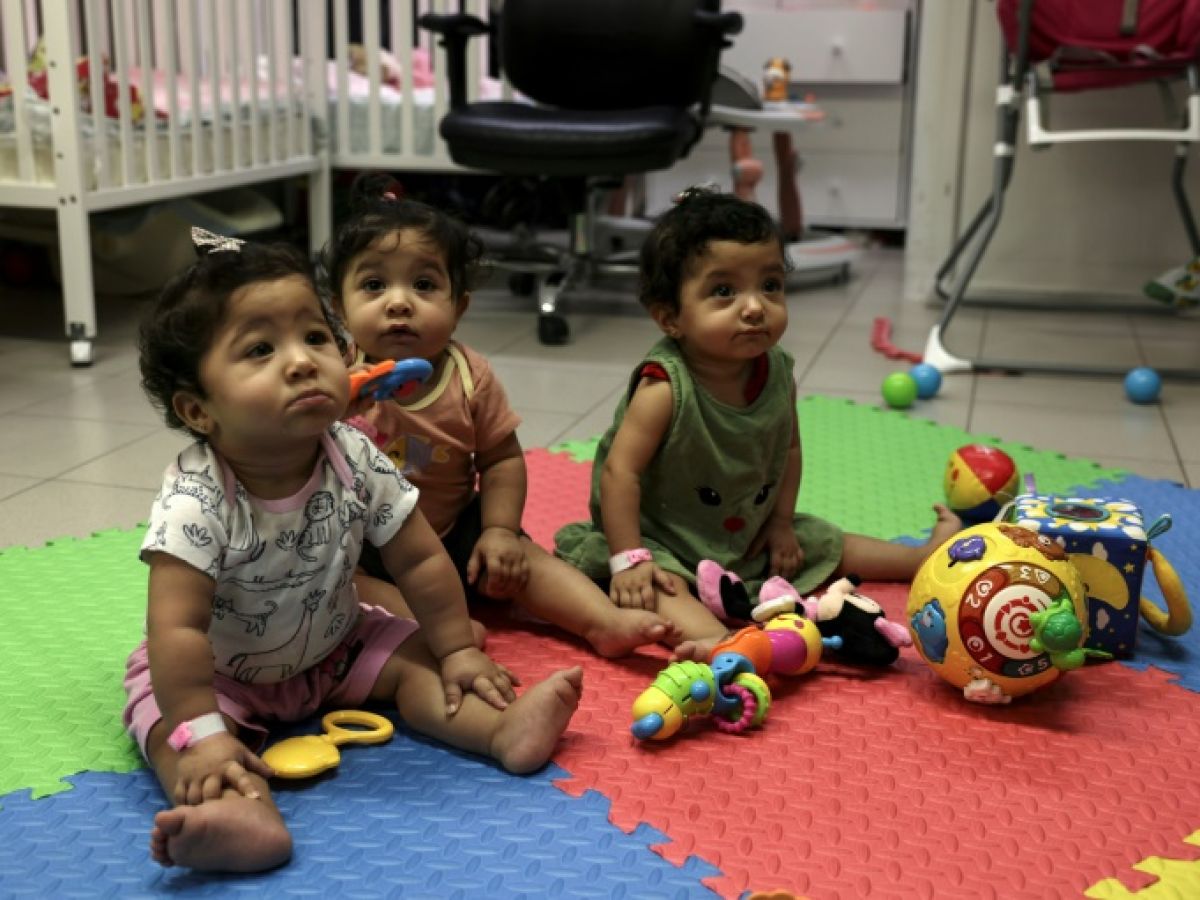Before the war in her homeland of Gaza, Hanane Bayouk gave birth to triplets in Jerusalem, where she barely saw them, forced to return to the Palestinian territory. Today, she fears "dying without kissing them."
The 26-year-old Palestinian woman gave birth to Najoua, Nour and Najmeh on August 24, 2023, at Makassed Hospital, the largest in occupied East Jerusalem annexed by Israel, after seven years of a complicated IVF journey.
She caught a glimpse of them in their incubators "for just half an hour" and had to drive the 80 km back to Gaza, which she had been able to leave because of a special permit issued to a very limited number of Gazans for health reasons by Israel.
My license "had expired and the hospital told me to leave," she said.
It was agreed that she would return at the beginning of October to collect her daughters after several weeks in an incubator because, even before the war, the hospitals in Gaza, under Israeli blockade for 17 years, did not have the necessary equipment.
"It's Driving Me Crazy"
On October 5, she reapplied for a permit. But two days later, commandos from the Islamist movement Hamas blew up the Erez crossing, the only exit point from Gaza to Israel.
These commandos entered Israel and carried out attacks that resulted in the deaths of 1,199 people, mostly civilians, according to an AFP count based on official Israeli data.
In retaliation, Israel launched a major offensive in Gaza that left more than 40,000 dead, according to the health ministry of the Hamas-run Gaza government.
Heba Idriss, too, cannot return to collect her only daughter, Saida, born two months before the start of the war at Makassed hospital, at only 27 weeks of pregnancy.
Her husband, Saleh Idriss, has never seen the baby. He had hoped that Heba would be able to take her home to al-Shajaiya in the northern Gaza Strip in the fall.
But for the past year, the couple, displaced nine times by Israeli evacuation orders and bombings, have only been able to see her in photos on a phone.
"I want to see my daughter, I'm suffering so much from being separated from her," says Heba Idriss, 37, between sobs.
Hanane Bayouk, for her part, had to flee Khan Younes, in the south of the Gaza Strip, and ended up in a tent with seven members of her in-laws where she now spends her days worrying.
"It makes me feel crazy." It took me so long to get pregnant and now I cry all the time," she tells AFP one day when she is finally reachable, after months of traveling, power cuts and precarious phone service.
"Sometimes I think I wish my daughters would go back to Gaza before I die because I have never hugged them, but I catch myself and tell myself it is better that they are safe away from the war," she says.
In Makassed, in normal times, there would not have been a place to keep the triplets for so long, the director of the department of intensive care for newborns, Dr. Hatem Khammach, told AFP.
– “I cry every time” –
But with the war, the facility has more places available. Israel has drastically reduced the number of permits for Palestinians from the occupied West Bank and Gaza to visit Jerusalem. And with checkpoints closed more frequently, even those with permits sometimes struggle to reach the Holy City.
"Before the war, we had seven or eight babies from Gaza in our ward, which can accommodate 30 at a time," he said.
But he has not received any since October 7. "And many sick people from the West Bank no longer reach us."
Some caregivers regularly call Hanane so she can speak to her daughters.
"My husband can't do it, I can do it and I cry every time we hang up, I'm afraid my daughters will grow up without knowing me," she says.
But if his spirit is in Jerusalem, his body continues to suffer fear, thirst and hunger in Gaza.
Added to this are the risks of scabies, chickenpox, skin rashes and lice, say doctors on the ground.
"And there is no medicine here," sighs Hanane.


